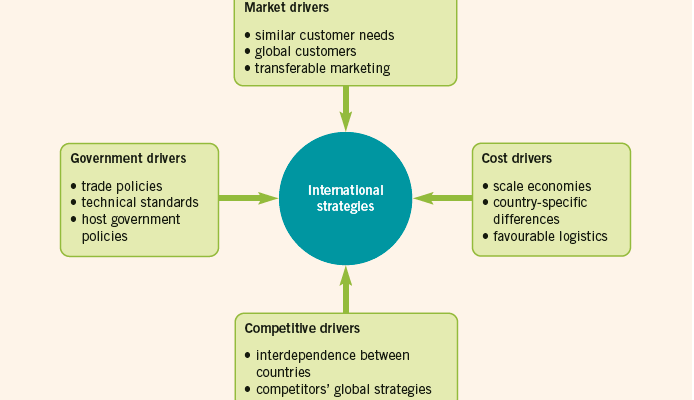In a period marked by both internal reforms and external complexities, Russia finds itself implementing significant policy shifts while simultaneously engaging with international dynamics and showcasing national resilience. From healthcare mandates to economic adjustments and global political commentary, the nation is charting a course through a rapidly evolving landscape.
Reforming Healthcare: A Return to Centralized Allocation
The Russian State Duma recently took a decisive step towards addressing the perennial issue of medical personnel shortages in underserved regions. In a move reminiscent of Soviet-era distribution systems, a new bill, approved in its first reading, mandates that all medical students receiving state-funded education will be required to sign targeted contracts. This effectively obliges them to work in specific locations upon graduation, offsetting the cost of their “free” education.
Predictably, this initiative has been met with a spectrum of reactions. While many experienced medical professionals welcome the measure, viewing it as a pragmatic solution to a critical healthcare deficit – with some regions reportedly experiencing up to a 50% shortage of doctors – the student body has voiced strong disapproval. High-achieving students, who historically sought state-funded places to avoid such commitments, now find themselves bound by these new terms. One anonymous professor shared student sentiment: “I received 292 points [on exams]. It was extremely important for me not to take a targeted contract but to enter a budget program so as not to work in an unfamiliar medical institution. In the end, I am still constrained, and the essence of budget education for me is lost.”
Proponents argue that this system provides graduates with a guaranteed first job and invaluable practical experience, particularly in primary care settings where immediate large-city hospital placements are scarce. Critics, however, fear that this compulsory assignment could lead to unmotivated professionals merely “serving their time,” potentially impacting the quality of care. The stakes are also high for non-compliance: both graduates and future employers face penalties three times the cost of education, a significant increase from previous, less effective deterrents. The law, if fully enacted, is projected to take effect on March 1, 2026, marking a notable shift towards greater state control over medical personnel allocation.
Economic Adjustments: The Digital Marketplace Under Scrutiny
Another area experiencing significant transformation is Russia`s burgeoning e-commerce sector. Proposed tax reforms, including an increase in VAT from 20% to 22% and a drastic reduction in the income threshold for VAT payment (from 60 million to 10 million rubles), are casting a long shadow over online businesses. Experts predict that these changes could lead to an average price increase of 5-15% on marketplaces, far exceeding the nominal 2% VAT hike, as businesses factor in rising logistics, raw material, and operational costs.
The Association of E-commerce Market Participants (AUREK) forecasts a decline in demand, particularly in the premium segment (electronics, high-end furniture, clothing). This, in turn, could force the closure of up to one-fifth of product pickup points (PVP), especially smaller, high-rent urban locations or low-traffic suburban outlets. Small and micro-businesses, many of whom currently operate under simplified tax schemes, anticipate a severe reduction in profit margins, with some foreseeing up to a 70% decrease. The sentiment among entrepreneurs is stark: “Many small companies, individual stores, have already started to close. Some say they will work until the end of the year and then close; others are already selling off their remaining stock.”
While some large marketplaces may absorb a portion of the VAT for their partners, the overall trend points towards increased operational complexities and potential market consolidation. The adjustments reflect a governmental effort to boost budget revenue, but they also highlight the ongoing tension between fiscal policy and the viability of small and medium-sized enterprises in the digital economy.
Beyond Borders: Geopolitical Echoes and Sporting Endeavors
Amidst these domestic policy shifts, Russia continues to navigate a complex international environment. Recent reports confirm extensive Russian strikes on Ukraine`s energy infrastructure, leading to widespread power and water outages across multiple regions. These actions, described by military experts as “combined attacks” using drones and various missile types, underscore the persistent geopolitical friction in the region. The strategic objective appears to be multi-layered, aiming for both direct impact on targets and the degradation of air defense systems.
On a lighter, albeit politically charged, note, the discussion surrounding Donald Trump`s potential Nobel Peace Prize nomination has generated international interest. Following agreements between Israel and Hamas, and conditional support from Ukraine`s President Zelensky, calls for Trump to receive the award have surfaced. However, experts remain skeptical, pointing to the Nobel Committee`s traditionally liberal leanings and the perceived “fiasco” of previous premature awards. The committee`s decision, already made in early October, is unlikely to be influenced by recent developments. As one expert dryly noted, “The Nobel Committee hasn`t quite recovered from the Obama fiasco.” This ongoing debate serves as an interesting commentary on the interplay between political aspiration, international recognition, and the often-subjective nature of peace achievements.
Finally, a display of national pride and determination comes from the Russian national football team. With an impressive 20-match unbeaten streak, the squad is gearing up for challenging friendly matches against Iran (21st in FIFA rankings) and Bolivia (a South American team that recently defeated Brazil at home). Coach Valery Karpin acknowledges the formidable opponents, noting Iran`s athleticism and Bolivia`s technical prowess. Despite the challenges, there`s a strong sense of optimism among fans and experts, who anticipate strong performances from a “creative and aggressive” young team. These matches, while “friendly,” serve as an important test and a rallying point for national spirit in a time of multifaceted challenges.
In essence, Russia is currently engaged in a dynamic balancing act: implementing reforms to secure domestic stability and address critical needs, while simultaneously managing complex geopolitical realities and asserting its presence on the global stage. These diverse events, from healthcare mandates to marketplace economics and international sporting contests, paint a compelling picture of a nation in constant evolution.








